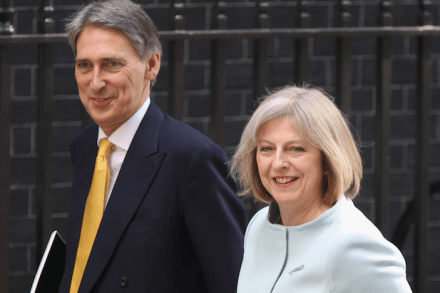The Spectator podcast: May’s winning hand
On this week’s podcast we discuss the royal flush that Theresa May has been dealt, debate Sadiq Khan’s progress, half a year into his tenure as London Mayor, and pose the seasonal question of whether advent is better than Christmas. First, James Forsyth‘s cover story this week charts the remarkable fortune of Theresa May, as the weaknesses of Labour and the Eurozone (not to mention her Trump card) give her a strong hand heading into the Brexit negotiations. Speaking to the podcast, James says that: “I think you could say that, look, the EU27 are being remarkably united at the moment. They clearly do not want to suggest that you can leave the




















